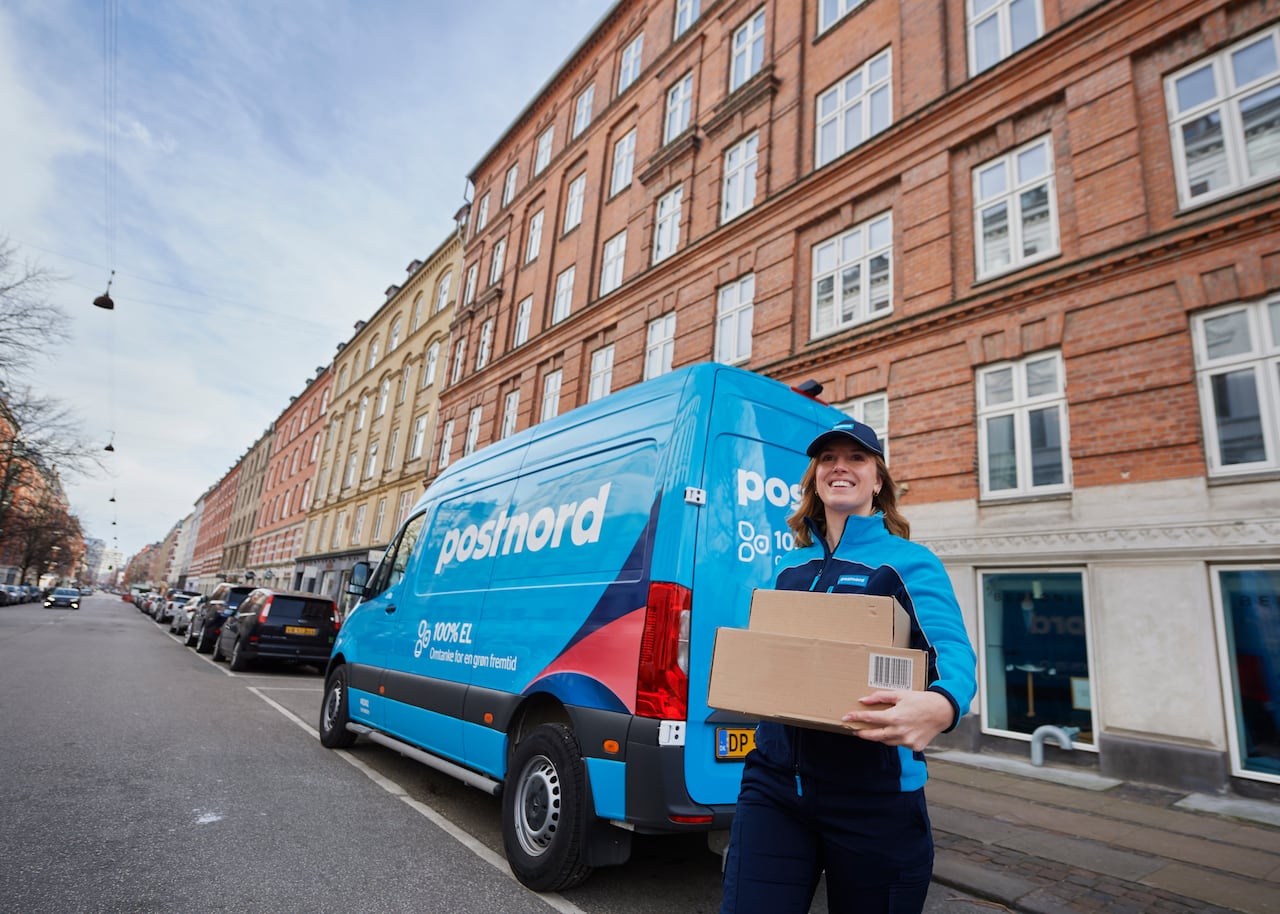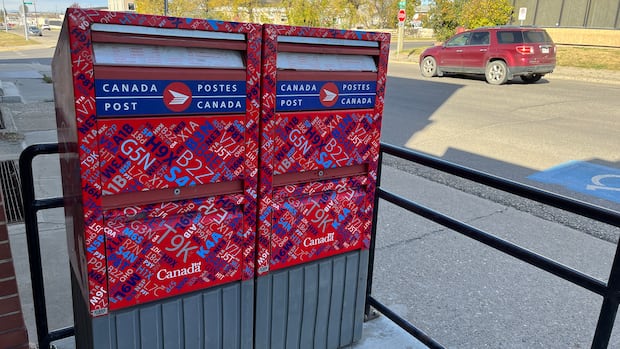By the end of 2025, Denmark’s postal service will have delivered its last letter. The state-owned PostNord is getting out of the letter delivery business and will focus solely on parcels.
It’s a move, the Danish postal service said, that was precipitated by the significant decline in letter volumes over the past 20 years, a development due in large part to the digitization of its society.
Canada’s postal service too has encountered major mail volume decreases — a situation that has prompted the government to propose significant changes, including ending home delivery.
But could Canada go even further, and follow Denmark’s path of eliminating letter delivery entirely?
‘We are not there yet’
“The reality is I think that we are not there yet,” said Nita Chhinzer, an associate professor in human resource management and business consulting at the University of Guelph.
Marvin Ryder, an associate professor at the DeGroote School of Business at McMaster University in Hamilton, agreed that Canada may not be ready to discard letter delivery entirely just yet, but it’s probably inevitable.
“I think Denmark is a canary in the coal mine,” he said. “I just think in Canada that’s a future at least 10 years down the road.”
There are some differences between Canada and Denmark in terms of their postal services.
The cost of stamps in Denmark is much more expensive. For a regular-sized letter, a stamp costs 29 kroner or around $6.35. A Canadian stamp costs $1.44, or a $1.24 in a stamp in a booklet.
But more significantly, the decline of mail volume differs most between the two countries.
In Canada, the volume of mail has decreased from 5.5 billion letters to two billion letters over the last 20 years, representing a 60 per cent decline.
In Denmark, the decline has been more steep, a 90 per cent drop over roughly the same time period.
 Kim Pedersen, chief of PostNord Denmark, says Danes hardly get letters anymore. (Submitted by PostNord)
Kim Pedersen, chief of PostNord Denmark, says Danes hardly get letters anymore. (Submitted by PostNord)
“Danes hardly receive any letters anymore. It’s been going down for years and years,” Kim Pedersen, chief of PostNord Denmark, told BBC News back in August. “They’re receiving one letter a month on average. It’s not a lot.”
“On the contrary, Danes love to shop online,” he said. “Global e-commerce is growing significantly, and we are moving with it.”
That’s all part of the government’s strategy to go “digital by default,” with paper used only as a “last resort,” according to the government website.
Indeed, Denmark ranks at the top of a number of digitization surveys. For example, in 2024, Denmark’s digital public sector was named the best in the world for the fourth consecutive time in the UN’s E-Government Survey. Canada ranked 47th.
‘Digital by default’
In Denmark, many of the items one may have received in the mail, like a government cheques, application or notices, have moved online.
Denmark also has apps for drivers licenses and health cards, although physical cards are also an option.
The discontinuation of letter delivery was only made possible by this high level of digitization in Denmark, says Jonas Hedman, a professor in the department of digitalization at the Copenhagen Business School.
Going digital “is a prerequisite,” he said. “Basically everything is digital, with some exceptions. It’s very, very difficult to live without digital capability.”
“If you don’t have that, you are more or less screwed in society.”
But the move to discontinue letter delivery has also raised concerns about the elderly and those in rural areas who may not be digitally connected. PostNord has said that while they are out of the letter delivery service, the private delivery sector will take over that responsibility.
But what that might mean for those living in remote areas, and whether they will still receive letter delivery, and at what potential cost, is unclear.
 Denmark’s state-owned PostNord is getting out of the letter delivery business and will focus solely on parcels. (Submitted by PostNord)
Denmark’s state-owned PostNord is getting out of the letter delivery business and will focus solely on parcels. (Submitted by PostNord)
Ryder said that issue could be one of the hurdles facing Canada if Canada Post decided to discontinue letter delivery. The government might order a private courier company like FedEx to take over Canada’s Post mandate to deliver to every address in Canada.
“I don’t know how the private sector would respond to that. They like their ability to cherry pick at the moment,” he said.
He added that the postal strike also reminded Canadians of what they do receive in the mail, like notices for health cards, driver licences and credit card renewals.
“We don’t think of it as a letter but it’s delivered in a letter-like envelope. These things are physical tangible things that have to be sent to you.”
Canada’s ‘tech resistance’
The labour dispute also caused an issue around the delivery of voter cards and mail-in ballots for multiple upcoming elections across the country.
So far, many of these items have yet to be digitized. Chhizner said one issue is that the Canadian government has fallen behind on digitizing its systems.
“So the government’s not there yet and our government’s been in some ways tech resistant,” she said.
“And some argue that the reason for that tech resistance is to protect jobs.”
WATCH | Canada Post delivery to resume:
Canada Post delivery to resume as workers move to rotating strikes
The Canadian Union of Postal Workers announced it will end its nationwide strike action and move to rotating strikes starting this weekend. CBC’s Sarah MacMillan has the latest details.
Chhinzer suggested Canadians may not be as ready as Denmark to give up on letter delivery in part because of cultural differences. She said that there are those Canadians who have a greater fear or resistance of using apps for everything, which may stem from concerns about privacy.
As well, many small Canadian businesses benefit from local mail advertisements, she said.
What many Canadians consider “junk mail” is actually an important part of some small businesses’ growth strategy, she said.
However, she said people who may have been hesitant to put their bills online before the COVID-19 pandemic have likely become more internet savvy.
As well, the postal worker labour action may have had a detrimental impact on the long-term letter delivery environment as more people clued into government online services.
Meanwhile, for the next generation, which would include Chhinzer’s own students, the Denmark model “should be the norm.”
“It’s weird for them to get mail,” she said.



